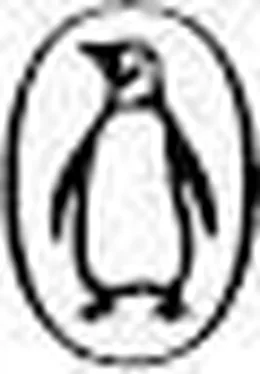Trevor, William - Children Of Dynmouth
Здесь есть возможность читать онлайн «Trevor, William - Children Of Dynmouth» весь текст электронной книги совершенно бесплатно (целиком полную версию без сокращений). В некоторых случаях можно слушать аудио, скачать через торрент в формате fb2 и присутствует краткое содержание. Год выпуска: 1976, Издательство: Penguin Publishing, Жанр: Старинная литература, на английском языке. Описание произведения, (предисловие) а так же отзывы посетителей доступны на портале библиотеки ЛибКат.
- Название:Children Of Dynmouth
- Автор:
- Издательство:Penguin Publishing
- Жанр:
- Год:1976
- ISBN:нет данных
- Рейтинг книги:4 / 5. Голосов: 1
-
Избранное:Добавить в избранное
- Отзывы:
-
Ваша оценка:
- 80
- 1
- 2
- 3
- 4
- 5
Children Of Dynmouth: краткое содержание, описание и аннотация
Предлагаем к чтению аннотацию, описание, краткое содержание или предисловие (зависит от того, что написал сам автор книги «Children Of Dynmouth»). Если вы не нашли необходимую информацию о книге — напишите в комментариях, мы постараемся отыскать её.
Children Of Dynmouth — читать онлайн бесплатно полную книгу (весь текст) целиком
Ниже представлен текст книги, разбитый по страницам. Система сохранения места последней прочитанной страницы, позволяет с удобством читать онлайн бесплатно книгу «Children Of Dynmouth», без необходимости каждый раз заново искать на чём Вы остановились. Поставьте закладку, и сможете в любой момент перейти на страницу, на которой закончили чтение.
Интервал:
Закладка:
The children of Dynmouth were as children anywhere. They led double lives; more regularly than their elders they travelled without moving from a room. They saw a different world: the sun looked different to them, and so did Dynmouth’s trees and grass and sand. Dogs loomed at a different level, eye to eye. Cats arched their tiger’s backs, and the birds behind bars in Moult’s Hardware and Pet Supplies gazed beadily down, appearing to speak messages. Pairs of Loretto nuns, airing themselves on the promenade, gazed down also, blackly nodding, a crucified body dangling among their black beads. Ring’s Amusements were Dynmouth’s Paradise.
No longer children, some found office work; others made for the supermarkets, the garages, the hotels, Dynmouth Lace Ltd, the printing-works of the Badstoneleigh and Dynmouth News, the laundry. Since the time of Queen Victoria – who visited the town – tea-shops had been a feature: there were twelve now, offering indifferent wages to girls who were nimble on their feet. A few boys became trawler-men, but life was easier and richer at the fish-packing station, and in the sandpaper factory and the tile-works. Some made their careers outside the town when the time came, even though Dynmouth remained home for them and was thought of with affection. Some couldn’t stand the town and dreamed, while still children, of being other people in other places.
Lavinia Featherston, who had been herself a child of Dynmouth, remembered when the green ornamental lamp-posts were all of a sudden huge no longer and when the grey-brown cliffs appeared to have been re-cut to size and the Spinning-Wheel Tea-Rooms seemed almost tatty. The rectory she lived in now, an ivy-clad building set among ragged lawns, had been a mysterious and forbidding house to her as a child, halfway up the hill called Once Hill, partly hidden from the road by a stone wall and a row of macrocarpa trees. It hadn’t changed, yet it was not the same. When she surveyed her nursery school in the rectory it sometimes saddened Lavinia that everything would become more ordinary for these children as they grew up, that all too soon the birds in Moult’s Hardware and Pet Supplies would cease to speak messages. She ran her school because she liked the company of children, though sometimes finding it a strain.
She found it so on the afternoon of a Wednesday in early April, the day, in fact, of St Pancras of Sicily, as her husband had remarked at breakfast-time. Outside, it was blustery and cold. Sheets of soft rain dribbled on the rectory’s window-panes. The fire in the sitting-room refused to light.
‘I’m really cross,’ Lavinia said, addressing her twin daughters, aged four. She regarded them sternly from the fireplace, out of breath because she’d been blowing at the charred edges of a newspaper. All day long, she reminded them, they’d been nothing but trouble, painting their hands at nursery school, tearing about Lipton’s when she’d told them to stand by the dog-food, and now, apparently, throwing jam at the kitchen window.
‘I didn’t,’ Susannah said.
‘Fell.’ Repeatedly Deborah nodded, lending weight to that explanation. ‘Fell and fell.’
Lavinia Featherston, a pretty, fair-haired woman of thirty-five, told her daughters to stop talking nonsense. Jam didn’t fall, she pointed out. Jam wasn’t like rain. Jam had to be taken from a pot and thrown. People were starving in the world: it wasn’t right to throw jam about a kitchen just because you were bored.
‘It fell out of the pot,’ Deborah said. ‘Goodness knows how it got to the window, Mummy.’
‘Goodness knows, Mummy.’
Lavinia continued to look sternly at them. They, too, were fair-haired; they had freckles on the bridges of their noses. Would a boy have looked the same? She’d often wondered that, and wondered it more relevantly just now.
That, at the moment, was the trouble with Lavinia. She was recovering from a miscarriage, feeling nervy and on edge. Everything had been going perfectly until a fortnight ago and then, after the loss of her child, Dr Greenslade had reminded her that he’d warned her against attempting to have it. The warning became an order: in no circumstances was she to attempt to have another baby.
This turn of events had upset Lavinia more than she’d have believed possible. She and Quentin had very much wanted a son; Dr Greenslade stood firm. The disappointment, still recent, was hard to shake off.
‘You know what happens to children who tell lies,’ she crossly reminded her daughters. ‘It’s high time you turned over a new leaf.’
The bell at the back door rang. A stick in the fire began half-heartedly to blaze. Slowly Lavinia gathered herself to her feet. It could be anyone, for the rectory was an open house. It was open to Mrs Slewy, the worst mother in Dynmouth, a shapeless woman who smelt of poverty and cigarettes, who lived in a condemned cottage in Boughs Lane with her five inadequate children. And to the elderly Miss Trimm, who’d been a schoolteacher in the town and nowadays was disturbed in her mind. Children returned for confirmation classes years after they’d left the nursery school, adults came for fellowship discussions. Mrs Keble, the organist, came to talk about hymns, and Father Madden to talk about ecumenicalism. Mrs Stead-Carter came importantly, Miss Poraway for a chat.
Today, though, it was none of these people: it was a figure known in Dynmouth only as Old Ape, who had come a day early for his weekly scraps. The scraps were meant to be for hens he kept, but everyone in Dynmouth knew that he didn’t possess hens and that he ate the scraps himself. When he came to the rectory he was also given a plate of meat and vegetables, provided he arrived at six o’clock on the specified day, which was Thursday. ‘I’ll get the scraps,’ Lavinia said at the back door. ‘You come back tomorrow for your dinner.’ Communication with Old Ape was difficult. It was said that he could speak but chose not to. It wasn’t known if he was deaf.
In the sitting-room the twins played with the pieces of a jigsaw, squatting on the hearth-rug in front of the damply flickering fire. When you interlocked the pieces of the puzzle there was a picture of a donkey, but they’d seen the donkey so many times it didn’t seem worth while going to all that trouble yet again. On the lid of the jigsaw box they built the pieces into a pyre.
‘Dragons come,’ Susannah said.
‘What dragons, Susannah?’
‘They come if you tell lies. They’re burny things. They’ve flames in them.’
But Deborah was thinking of something else. She was thinking of being in the garden, of looking all over the grass and then in the flower-beds and on the gravel by the garage and along by the edges of the paths, until she found a new leaf. She closed her eyes and saw herself leaning down by the edge of a path and turning the new leaf over to see what was on the other side.
In the kitchen their mother made a cup of tea, and in the streets of Dynmouth their father, the vicar of St Simon and St Jude’s, pedalled through the wind and the rain on a 1937 Rudge, left to him in a parishioner’s will. He was an impressive figure on this bicycle, rather lanky, his hair prematurely grey, his face seeming ascetic until cheered by a smile that occurred whenever he greeted anyone. He hoped as he went about his familiar Wednesday duty of visiting the sick among his parishioners that Lavinia wasn’t having a time with the twins, cooped inside on a damp afternoon. He thought about his wife as he chatted to old, disturbed Miss Trimm, who had a cold, and to little Sharon Lines, who was on a kidney machine. They’d waited almost nine years for the twins to be born: they had a lot to be thankful for but it was hard to comfort a woman who’d lost a child and couldn’t have another. Lavinia’s moments of despondency were irrational, she said so herself, yet they continued to afflict her. They made her not at all like what she was.
Читать дальшеИнтервал:
Закладка:
Похожие книги на «Children Of Dynmouth»
Представляем Вашему вниманию похожие книги на «Children Of Dynmouth» списком для выбора. Мы отобрали схожую по названию и смыслу литературу в надежде предоставить читателям больше вариантов отыскать новые, интересные, ещё непрочитанные произведения.
Обсуждение, отзывы о книге «Children Of Dynmouth» и просто собственные мнения читателей. Оставьте ваши комментарии, напишите, что Вы думаете о произведении, его смысле или главных героях. Укажите что конкретно понравилось, а что нет, и почему Вы так считаете.










